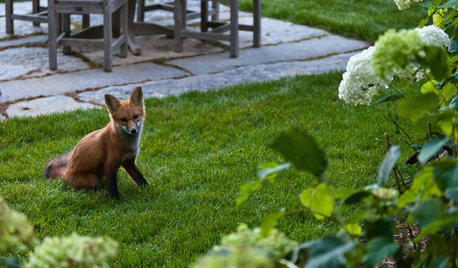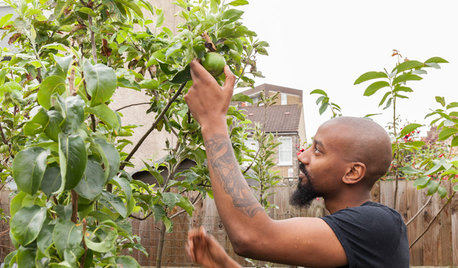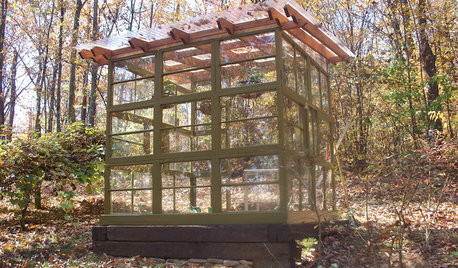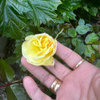horse manure application
dregae (IN, zone 6b)
11 years ago
Related Stories

GARDENING GUIDESThe Poop Scoop: Enrich Your Soil With Good Old Manure
Get over the ick factor already — this natural super-ingredient for soil has so many benefits, you'll wonder why you ever went chemical
Full Story
GUESTHOUSESHouzz Tour: This Guesthouse’s Former Residents Were Horses
A new insulated exterior for a Vermont carriage barn preserves its rustic interior
Full Story
FUN HOUZZThe Cutest Darn Animals on Houzz
You might end up admiring these horses, goats, llamas and more until the cows come home
Full Story
HOUZZ TOURSMy Houzz: An Animal Lover's Texas Sanctuary
Dogs, cats and horses enjoy an idyllic temporary refuge here, but the eco-minded home has a permanent place in its owner's heart
Full Story
GARDENING GUIDESLush, Foodie Abundance in a Small Urban Garden
This modest backyard garden provides its owner with fruit and vegetables all year round, thanks to an innovative low-maintenance approach
Full Story
FARM YOUR YARDHow to Build a Raised Bed for Your Veggies and Plants
Whether you’re farming your parking strip or beautifying your backyard, a planting box you make yourself can come in mighty handy
Full Story
GARDENING AND LANDSCAPINGSee a Family Greenhouse Grown From Scraps
Can-do resourcefulness and less than $400 lead to a new 8- by 8-foot home for plants on a Tennessee family's property
Full Story
KITCHEN DESIGNKitchen of the Week: Keeping It Casual in a Modern Farmhouse
Raised ceilings and knocked-down walls create a light, bright and more open barn-like kitchen in California
Full Story
True Grit: Classic, Old-West Style Design
Design Eye on the Oscars: How to Bring a Little True Grit Home
Full StoryMore Discussions









jerijen
seil zone 6b MI
Related Professionals
Canton Landscape Architects & Landscape Designers · Citrus Heights Landscape Architects & Landscape Designers · Forest Park Landscape Architects & Landscape Designers · Port Royal Landscape Architects & Landscape Designers · Mount Wilson Landscape Architects & Landscape Designers · Berkley Landscape Contractors · Lemoore Landscape Contractors · Lynchburg Landscape Contractors · Mahwah Landscape Contractors · Mason Landscape Contractors · North Ridgeville Landscape Contractors · Parker Landscape Contractors · Peoria Landscape Contractors · Tustin Landscape Contractors · Weymouth Landscape Contractorsstrawchicago z5
harmonyp
strawchicago z5
Kippy
subk3
Kippy
dregae (IN, zone 6b)Original Author
dregae (IN, zone 6b)Original Author
jeannie2009
harmonyp
strawchicago z5
subk3
dregae (IN, zone 6b)Original Author
strawchicago z5
karl_bapst_rosenut
happyret65
harmonyp